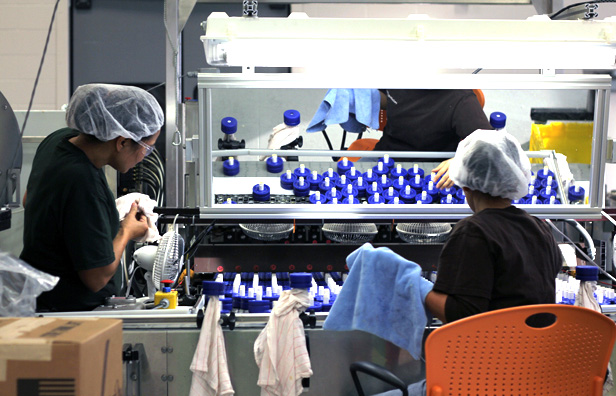December 20, 2023
4 Sustainability Trends To Watch in 2024
Brands are increasingly looking for third-party eco-certifications as a strategy to cut down on greenwashing claims. Expect such requirements to intensify in the new year.
As we round the corner to a new year, most companies are conducting annual reviews, setting goals and revisiting their values. Navigating modern business with appropriate awareness is no easy task, but one thing’s for certain: You’ll want to continue – or start – placing emphasis on your social and environmental impact amid your fourth-quarter reflections and upcoming aspirations.
The overarching theme across all industries moving into 2024? Sustainable business practices are no longer optional. While companies that were mission-driven from inception are thrilled to see more responsible behaviors take hold, the fact that sustainability is “trending” comes with its own set of challenges. Here, a handful of promotional business owners weigh in on several areas of sustainability worth watching – and getting involved in – as we forge a realistic path forward.
1. Cracking Down on Greenwashing

In the Wild West of marketing, words like “eco-friendly,” “natural,” “sustainable” and “green” are open to infinite interpretations. Businesses all along the supply chain can help the industry create standards of practice and uphold collective integrity by asking questions, requesting documentation and learning more about their partners’ practices before buying.
Gia Machlin, owner of B Corp-certified EcoPlum (asi/185835) in New York City, asks all her suppliers to sign a customized vendor code of conduct, disclose their factory locations and provide documentation for any claim of recycled content, renewable material and other “green” declarations. “We also ask for thorough documentation for fair labor, wages and conscious business practices,” Machlin says. “Always do your own research so that you can fully stand behind the products and services you offer.”
Kris Robinson, chief sustainability officer for Top 40 distributor PromoShop (asi/300446) and a member of the Promo for the Planet advisory board, seconds the need for documentation and adds that the information can be used to educate down the line in a creative fashion.
“We did a project last year for almost 50,000 jackets made out of recycled water bottles, with a hang tag on each one that gave people information about manufacturing and the number of bottles it took to make the jacket,” Robinson says. “This cracks down on greenwashing by backing up the claims of an environmentally friendlier option, and does so in a fun, creative way. This is how the movement spreads.”
2. Making Third-Party Certifications a Must

Raining Rose (asi/80489), which manufactures all-natural and organic body products from its sustainable LEED-certified facility in Cedar Rapids, IA, has been a certified B Corp since 2016.
To answer questions of proof, many companies are relying on audits from outside eyes. Official third-party certifications such as EcoVadis ratings or B Corp status on the company level, and OEKO-TEX and Global Organic Textile Standard (GOTS) on the product level, are becoming expected pieces of documentation on RFPs.
“Customers want to know what you’re doing in the environmental, social and corporate governance space, and if your answer is ‘nothing’ or ‘I don’t know,’ you’re out,” says Nate Robson, vice president of sales and marketing and head of corporate social responsibility (CSR) objectives at Raining Rose (asi/80489) in Cedar Rapids, IA. “We’re being asked to continue to raise the bar in terms of who we decide to source raw materials from all over the world, and proving that we’ve been through the rigorous processes of third-party, nonbiased vetting is much more common.”
3. Addressing PFAS – Again

Mirum is a plant-based, plastic-free material that can mimic the look of leather to create climate-friendly footwear, fashion and accessories.
Back for another year on the sustainability trends list is the need to address PFAS. Polyfluoroalkyl substances, known as “forever chemicals,” are found in outdoor and leisure apparel, cookware and other items such as an industry favorite: the stress reliever ball. According to the Environmental Working Group, these chemicals “pollute water, do not break down, and remain in the environment and people for decades.” As of July, at least seven states have passed PFAS restrictions or reporting requirements for a range of consumer products.
L.L.Bean, a Maine-based outdoor apparel company, has set a goal to eliminate PFAS from L.L.Bean-labeled products by the end of 2024, and companies like Caraway Cookware are making nontoxic, mineral-based product coatings and educating customers on the dangers of PFAS found in a majority of nonstick pots and pans.
Other companies are following suit with their own alternatives, prioritizing products that are fully circular and can break down in soil over time. Mirum, for example, is a new USDA-certified bio-based product, used to produce plastic-free and plant-based bags, shoes, apparel and automotive interiors.
“It’s more expensive to make something PFAS-free, but define cost,” says Robinson at PromoShop. “We’re paying for it with our futures. Time will tell if these alternatives are scalable options, but it’s worth trying.”
4. Building Sustainability-Focused Business Structures

Gone are the days when one person in the office happened to care about sustainability and single-handedly led the efforts. Companies are hiring environmental consultants, creating teams to focus on their sustainability plans, and centralizing efforts for maximum efficiency across departments and branches. Kate Nash, director of promotional sales at Raining Rose and a Promo for the Planet advisory board member, sees the evolution of sustainability as a structural and relational conversation, rather than purely product focused.
“Sustainability efforts are an essential part of building trust between partners now,” she says. “The product part comes and goes with new trends and innovations, but if you see me as aligning with your ethos on how we go to market in this space, and you trust me to be honest along the way, we can stick together as we both continue to learn and evolve.”
With this growing demand for transparency and new generations of creative minds at the helm, retail and promo are certainly in for another revolutionary year.

Promo for the Planet is your destination for the latest news, biggest trends and best ideas to help build a more sustainable and socially-responsible industry.